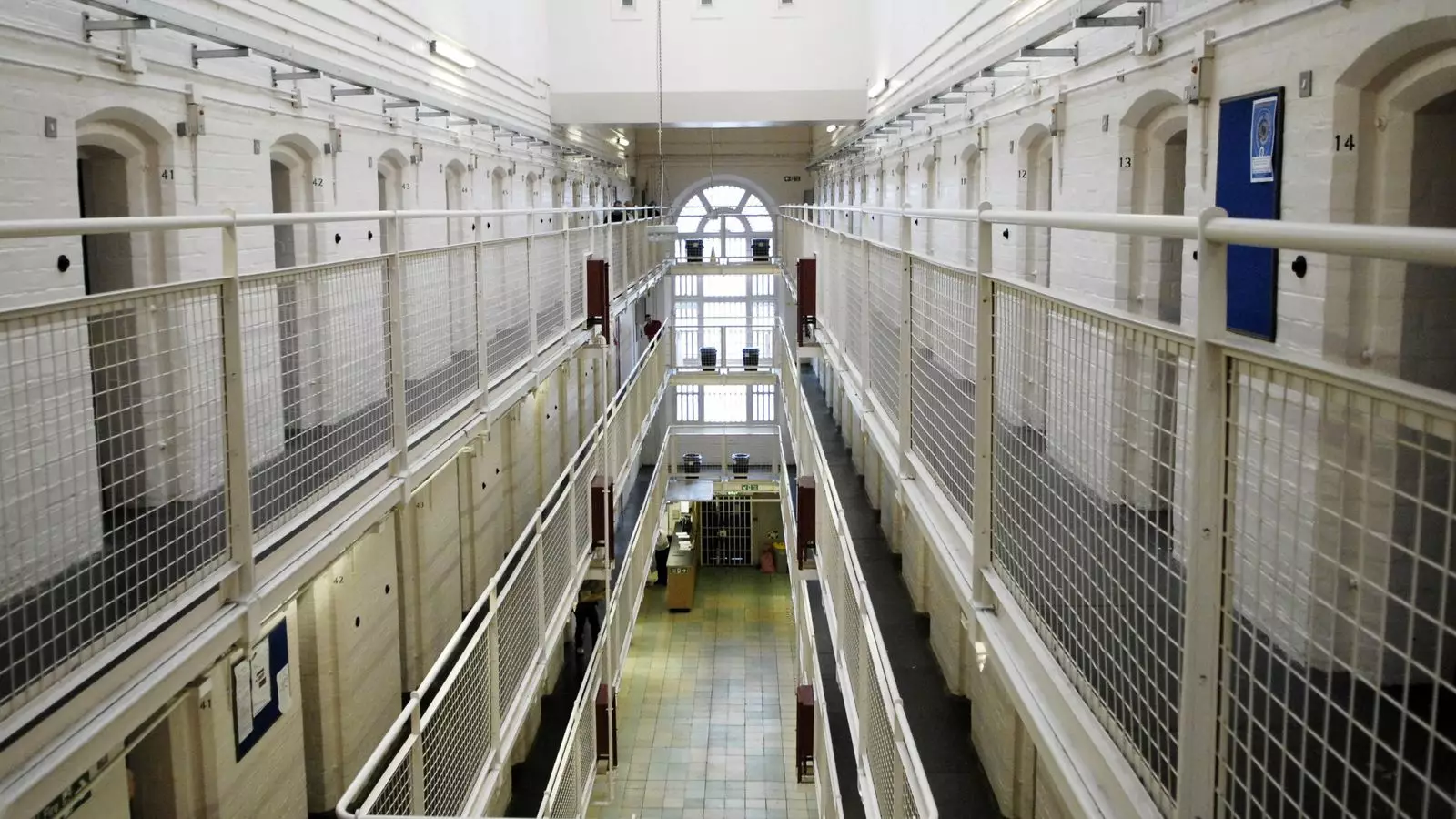The ongoing debate surrounding crime and punishment in England and Wales highlights the critical need for a reassessment of the nation’s approach to criminal justice. A recent report by the Independent Sentencing Review has drawn attention to a concerning trend: successive governments have prioritized a “tough on crime” stance, resulting in an ever-increasing prison population. This model has become unsustainable, causing a bottleneck that is overwhelming the penal system. With crime rates witnessing a general decline since the mid-1990s, one must question the logic behind escalating sentences that have resulted in overcrowded prisons.
Former lord chancellor David Gauke, who chairs the review, underscored the deficiencies in decades-long policy-making that appears reactionary rather than strategic. The report indicates that England and Wales possess one of the highest incarceration rates in Western Europe, which raises questions about effective crime management and justice administration.
One of the key findings of the report concerns the significant rise in the recall of offenders on license, which has skyrocketed from under 100 instances in 1993 to nearly 13,000 by December 2024. This trend reveals a systematic failure not just in crime reduction, but also in managing offender rehabilitation. Last September, the government’s decision to temporarily reduce the proportion of a sentence served inside from 50% to 40% in an attempt to relieve prison overcrowding underscores the severity of the situation. This drastic measure inevitably raises concerns about the adequacy of punishment, as well as public safety.
Prime Minister Sir Keir Starmer’s candid acknowledgment that the crisis is a consequence of “decades of haphazard policymaking” further illuminates the urgency for reform. His recognition of a flawed system that seemingly disregards the repercussions of increased sentencing allows for a more informed dialogue about the long-term impacts on both offenders and victims.
Gauke’s remarks point to the necessity of shifting the conversation regarding sentencing. He emphasizes that punishment is just one facet of criminal justice; it should not eclipse the importance of rehabilitation. The review’s primary focus is to explore alternatives to incarceration that maintain accountability without exacerbating the prison crisis.
A burgeoning body of evidence suggests that simply increasing prison sentences does little to deter crime and may indeed contribute to criminal behavior. By reallocating resources towards more community-based measures and rehabilitation efforts, the criminal justice system could facilitate better outcomes for both offenders and the community at large.
Furthermore, the report highlights how introducing new offences and mandatory minimum sentences—often in response to high-profile, sensational cases—has resulted in inconsistencies within the judicial process. This has created a landscape where victims may find themselves ensnared in a justice system that feels inequitable, leading to a profound sense of injustice that undermines public trust.
Campaigns from organizations like the Howard League for Penal Reform echo the report’s findings, emphasizing that the current predicament transcends mere issues of prison capacity; it delves into the very fabric of societal safety and justice. Their campaigns advocate for the urgent need to address the underlying challenges of overcrowded and often violent penitentiaries, combined with a probation service that is both overstretched and underfunded.
The call for reform is not merely about easing overcrowding; it is about re-envisioning what it means to punish and rehabilitate. An initial step must involve an honest evaluation of whom we incarcerate and the lengths of their sentences. Doing so may help foster a balanced approach in which punishment does not overshadow the necessity for rehabilitation and investment in preventative strategies.
The Independent Sentencing Review serves as a crucial juncture in the discourse surrounding criminal justice in England and Wales. Embracing reform could pave the way for a system that prioritizes not just punishment but a holistic and effective approach to reducing crime and supporting victims, ultimately rebuilding faith in public safety and justice.


Leave a Reply